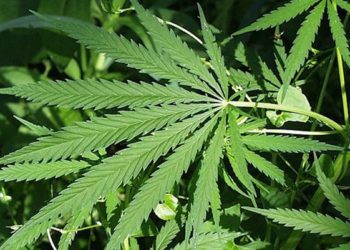Little quality evidence on the effectiveness of cannabinoids for treating chronic pain or PTSD
1. There is a paucity of evidence regarding the benefits and harms of plant-based cannabis for posttraumatic stress disorder (PTSD).
2. Currently, it is not possible to draw strong conclusions regarding the utility of cannabis for PTSD treatment.
Evidence Rating Level: 1 (Excellent)
Study Rundown: Medical cannabis use has become more common globally. In the United States, the number of persons who have reported cannabis use within the past year has almost doubled from 2001 and 2013. PTSD is one of the most common indications for medical cannabis use. Despite the fact that many patients are utilizing cannabis to manage PTSD, current evidence for its efficacy is limited. Therefore, the goals of this review were to assess the benefits and harms of plant-based cannabis use in patients to treat PTSD and to highlight research within this field. This article has several limitations. First, the evidence found had a medium to high risk of bias. Second, there is a general lack of efficacy trials regarding cannabis and PTSD treatment. Study quality was also limiting. Overall, the results of this study suggest that further research is required before firm conclusions can be made regarding the effectiveness of cannabis and cannabinoid products for treating PTSD.
Click to read the study, published in the Annals of Internal Medicine
Relevant Reading: Posttraumatic Stress Disorder and Cannabis Use Characteristics among Military Veterans with Cannabis Dependence
In-Depth [systematic review]: The authors of the study conducted a systematic review to assess the efficacy of cannabis in treating PTSD. In total, 13 691 articles were identified in the initial search, of which five were included for data analysis and extraction. Two of these articles were systematic reviews and three were observational studies. In general, the authors concluded that the evidence was insufficient to draw any strong conclusions regarding cannabis and PTSD. The literature had small sample sizes, a lack of adjustment for confounders, and a lack of non-cannabis-using control groups included in the studies.
Image: CC/Wiki
©2017 2 Minute Medicine, Inc. All rights reserved. No works may be reproduced without expressed written consent from 2 Minute Medicine, Inc. Inquire about licensing here. No article should be construed as medical advice and is not intended as such by the authors or by 2 Minute Medicine, Inc.






![Nanoparticle delivery of aurora kinase inhibitor may improve tumor treatment [PreClinical]](https://www.2minutemedicine.com/wp-content/uploads/2016/02/20541_lores-75x75.jpg)